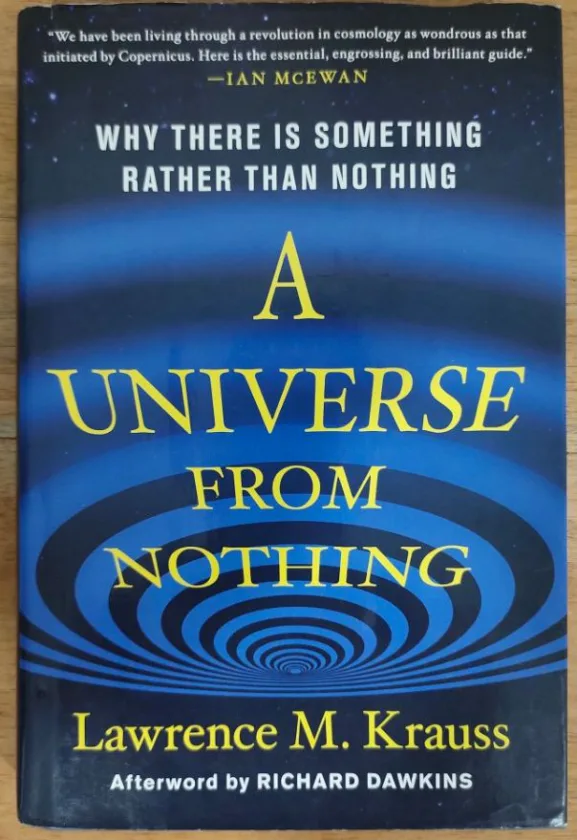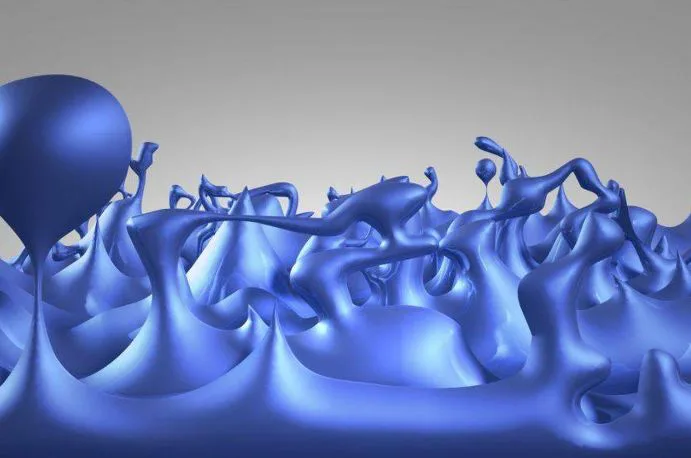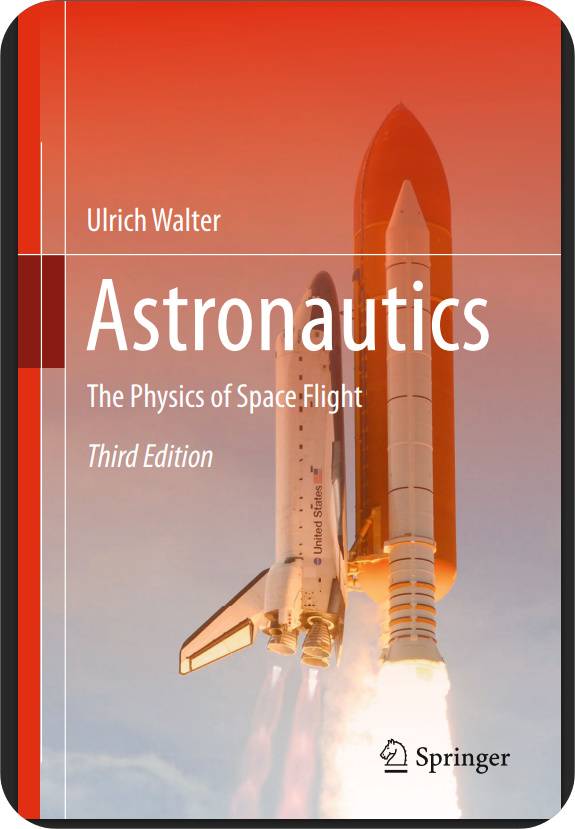
A Universe from Nothing: Why There Is Something Rather than Nothing is a voyage to the forefront of cosmology. The book is written by acclaimed physicist Lawrence M. Krauss and was published in 2012.
Krauss has beautifully blended his observational prowess, theoretical ingenuity, and technological advancements while framing the concepts and notions in his book.
The idea that the universe emerged from random quantum fluctuations is, indeed, fascinating.
While the notion that “something” can emerge from “nothing” is not a recent revelation. It has been a subject of philosophical and scientific contemplation for centuries.
When it comes to science, quantum physics, to be more specific, empty space is not truly empty but is filled with quantum fields and fluctuations.
Existence is due to laws of quantum mechanics
Talking about the book, Krauss claims that laws of quantum mechanics provide a scientific explanation for the existence of something rather than nothing. After all, the existence of particles and consequently the physical universe is an offshoot of inherent properties and behavior of quantum fields.
The notion has obviously challenged the traditional theological perspectives.
According to religious and theological traditions, universe was created by a divine entity, who is also a conscious creator. Therefore, universe is the result of a “deliberate act of God’s will”.
What could be the origin of the laws?
Coming back to Krauss’s argument, if the universe’s origin and existence can be understood through the laws of quantum mechanics. Then what could be the origin of the laws of quantum mechanics themselves.
Surprisingly, Krauss acknowledges that he doesn’t have an answer to this question. He goes on to say that even if we touch the deepest layers of the laws (that govern the universe), the question of why that property exists would still remain unanswered.
Laws define the arrangement and behavior of physical entities
If we look back history, we find, that fundamental laws of nature have always emphasised on the representation of the arrangement and behavior of elementary physical entities.
Newton’s physics was concerned with material particles. While subsequent theories incorporated electromagnetic fields.
Likewise, quantum field theories, including relativistic quantum field theories, focused on the arrangements and interactions of quantum fields. Instead of directly addressing the question of the ultimate origin or cause of these fields themselves.
Scientific theories, therefore, merely provide rules for understanding the arrangement and interactions of elementary physical entities.
From a theological perspective, this can be seen as a limitation of scientific explanations rooted in quantum field theories.

Vacuum states could be responsible for existence of the universe
Krauss then touches the main argument that forms the running motif in the book. It revolves around the idea that vacuum states within relativistic quantum field theories can be considered a type of “nothingness.” And “nothingness” here implies, specific arrangements of quantum fields with no particles present.
He, accordingly, suggests that these vacuum states, serve as a natural explanation for the existence of the universe.
He further expatiates, the laws of quantum mechanics dictate that particles can spontaneously emerge from and disappear back into these vacuum states. The phenomenon occurs due to the inherent fluctuations of the fields.
He argues that these quantum fluctuations can give rise to the creation of particles and, in turn, entire universes.
Thus, Krauss challenges traditional notions of what it means for “something” to come from “nothing”.
He suggests that these quantum fluctuations in the vacuum state provide a scientific mechanism for the origin of the universe. This hypothesis also implies that there is no need for any external or supernatural cause or any creator for creation to occur.
Quantum Physics and Advaita Vedanta
I find a similar line of thought running through Ashtavakra Gita from Advaita Vedanta tradition. The original Sanskrit texts goes as follows (Chapter 7. Verses 1,2 &3):
मय्यनन्तमहाम्भोधौ विश्वपोत इतस्ततः।
भ्रमति स्वान्तवातेन न ममास्त्यसहिष्णुता।।7.1।।
मय्यनन्तमहाम्भोधौ जगद्वीचिः स्वभावतः।
उदेतु वास्तमायातु न मे वृद्धिर्न न क्षतिः।।7.2।।
मय्यनन्तमहाम्भोधौ विश्वं नाम विकल्पना।
अतिशान्तो निराकार एतदेवाहमास्थितः।।7.3।।
In the above lines, King Janaka addressing Sage Ashtavakra, acknowledges that the world is an appearance arising from the ocean of consciousness. “I” here refers to the “consciousness”. Hence, please follow the English translation of the above Sanskrit lines:
I am the boundless ocean.
This way and that,
The wind, blowing where it will,
Drives the ship of the world.
But I am not shaken. (7.1)
I am the unbounded deep
In whom the waves of all the worlds
Naturally rise and fall.
But I do not rise or fall. (7.2)
I am the infinite deep
In whom all the worlds
Appear to rise.
Beyond all form,
Forever still. Even so am I. (7.3)
I find it interesting how Quantum Physics and Advaita line of thought run parallel to each other. I’m sure Lawrence M. Krauss has nothing to do with Advaita and vice-versa of course. But the idea in itself is fascinating how two different subjects try to converge towards the same point of “singularity”.

Takeaway: Finding satisfaction in the pursuit of knowledge
So, does it mean that most of the religious beliefs are just redundant and so it must be left behind? Well, no.
On the contrary, human experiences are quite a complex ecosystem. These experiences become instrumental in driving people meaning and purpose in their lives.
Universe without purpose or guidance can be seen as either meaningless or invigorating, depending on one’s perspective.
For religious people, having a notion of creator/father figure/mother figure gives a feeling of interconnectedness. While for some, the existence of a purposeless universe is amazing. They see it as a motivation to derive meaning from their own actions.
They acknowledge that the desires and preferences of humans are irrelevant to the functioning of the universe on a cosmic scale.
I strongly resonate with the author, I like the idea of understanding the circumstances of our existence. And describing the scientific journey of exploring and comprehending the cosmos gives a sense of awe and admiration towards the universe.
People like us, adds Krauss, draw a parallel between the scientific endeavor and the myth of Sisyphus. That is, finding satisfaction in the pursuit of knowledge regardless of the outcome.
As humanity, we have progressed from the idea “Earth was at the center of the universe” to “Big Bang” and “Expanding universe”. This progress has led to a deeper understanding of the universe and a revaluation of the fundamental questions about existence.
Science, therefore, advocates for making informed choices based on facts rather than revelation. After all, the universe arose from nothing, makes it a strong intellectually compelling case.
A Universe from Nothing is filled with insightful truths. These profound truths have the power to expand our understanding, challenge our perspectives, and encourage us to engage in critical thinking. Super interesting book, I highly recommend.



